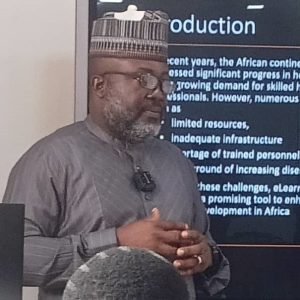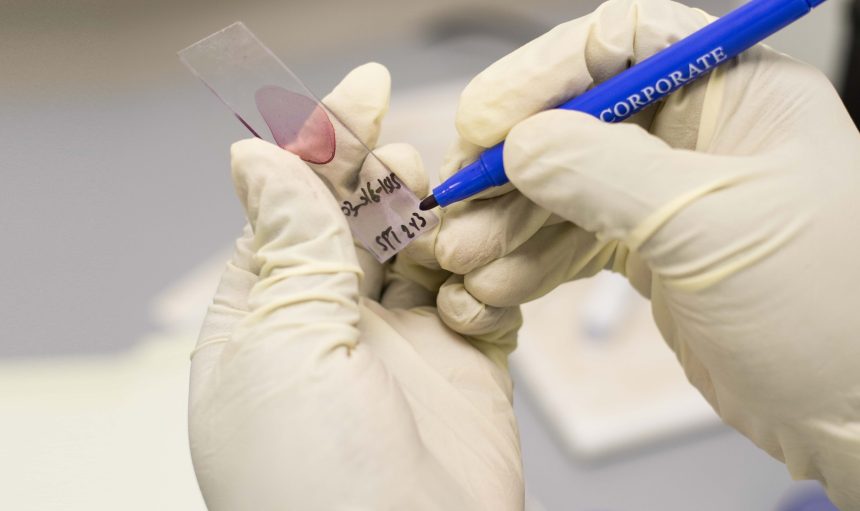African Diseases Prevention and Research Development Initiative (ADRAP), a Nigeria based non-Governmental public health institution has commenced the next round of training aimed at building the capacity of no fewer than four thousand health workers in Africa on Tuberculosis prevention, control and management through electronic Learning (e-Learning).
Through the current online training which are happening simultaneously but independent of each other in Nigeria and Liberia, ADRAP is supporting the National Tuberculosis and Leprosy control Program of Nigeria with funding from the Global fund to advance progress in its TB control activities. It is also supporting the National Leprosy and Tuberculosis Control Program of Liberia with funding from the United States Agency for International Development (USAID) through the WHO to achieve similar feat in both countries.
Only recently, experts in the health space, especially those involved in TB intervention activities from Liberia, led by the country’s Deputy Minister of Health, Dr. Francis Kateh, were in Nigeria to learn, first-hand from ADRAP how they could leap-frog some of the obvious and inherent challenges that they face in their everyday work schedules using virtual technology.
Your message has been sent

The Chief Executive Officer (CEO) of ADRAP, Dr. Joseph Enegela, who gave insight on the e-Learning model said the visit by the Liberian team highlights the importance of trans-border collaborations to deepen TB control efforts through the promotion of education growth and partnership within the continent..
Dr. Enegela said e-learning is the future of health workforce development in Africa, as it facilitates access to quality knowledge, just as its flexibility, cost-effectiveness, interactive nature offer opportunities for peer to peer learning and ability to standardize education.
“The future of e-learning for health workforce development in Africa holds tremendous potential to bridge the healthcare education gap, address workforce shortages and improve health outcomes,” Dr. Enegela said.
He added that although challenges such as limited resources, inadequate infrastructure, shortage of trained personnel and a background of increasing diseases burden abound, e-learning has emerged as a promising tool to enhance health workforce development in Africa.”
Similarly, the Deputy Minister of Health for Liberia, Dr. Francis Kateh, highlighted the need for e-learning as a tool to by-pass natural barriers like weather conditions. Citing the case of Liberia, he said, “During the rainy season, many parts of the country are completely cut-off, making healthcare delivery difficult. Therefore, for such time, there is need to develop the capacity of health workers.”
He said that COVID 19 created a gap between countries in terms of training and building capacity of care workers. So, he sees e-learning as critical for continuously building of the capacity of Africa’s health workers to provide quality healthcare services.
The Program Manager of the Liberian National Leprosy and TB Control Program, Mr. Rufus Saye in his presentation of the synopsis of the program activities stated that capacity gap is a challenge to the fight to end TB.
In his presentation, he highlighted the impact an online training will have in bridging this gap, saying it is the perfect way to bridge the health workers gaps in Africa.
The USAID TB Advisor to Liberia, Dr. Victor Falokun in his comments said this collaborative efforts and visit by the Liberian team is the start of what promises to be a long relationship among African countries and other countries in the Global south who aim to learn from each other and foster a south-south collaboration in the health intervention space. He continued that with the variety challenges being faced by the resource limited countries, e-learning will be a key factor in accelerating capacity building.
The World Health Organization’s (WHO) Technical Advisor for Liberia, Dr. Moses Jeunrulon, commended the e-Learning initiative, saying it provides a veritable opportunity for making learning an on-going process.
While recognizing the logistical challenges of traditional learning, the WHO Advisor used the opportunity to advocate for more innovative and digital technologies and solutions such as ADRAP’s e-Learning model.
“At WHO, we see this e-learning innovation as a lunch towards e-health and we are ready to support, engage, and partner with ADRAP to scale this up across the continent. Additionally, the lessons from Liberia will be shared regionally so that others can build on it.”
TB is rated as the leading cause of death from a single infectious agent, ranking above HIV and AIDS among others. In Africa, TB control activities are often hampered by a combination of natural and human factors. Progress made towards TB control over the last two decades in Africa were gravely affected by the COVID-19 pandemic.
Reeling from the COVID-19 drawbacks, ADRAP is looking at how to return Nigeria, Liberia and other African countries to the path of progress in the control of diseases in general and TB in particular using the e-Learning for health workers as the latitude.
So far ADRAP has worked with several partners including Catholic Caritas foundation of Nigeria (CCFN), Nigeria Centre for Disease Control (NCDC), National Tuberculosis Leprosy and Buruli Ulcer Control program (NTBLCP), KNCV Tuberculosis Foundation Nigeria, National Tuberculosis and Leprosy Training Centre Zaria, AbbVie South Africa and Plan International to train over 14, 000 health workers on various diseases intervention projects including HIV, WASH and health care system management.





